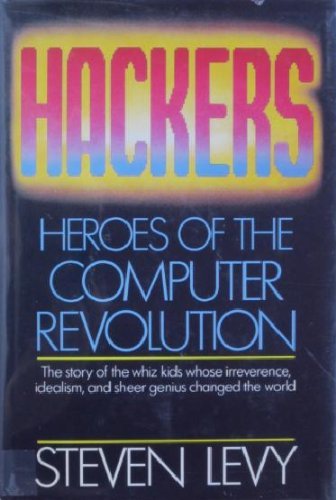

They had a shared sense of values, known as "the hacker ethic," that still thrives today. Levy profiles the imaginative brainiacs who found clever and unorthodox solutions to computer engineering problems. With updated material from noteworthy hackers such as Bill Gates, Mark Zukerberg, Richard Stallman, and Steve Wozniak, Hackers is a fascinating story that begins in early computer research labs and leads to the first home computers. This 25th anniversary edition of Steven Levy's classic book traces the exploits of the computer revolution's original hackers - those brilliant and eccentric nerds from the late 1950s through the early '80s who took risks, bent the rules, and pushed the world in a radical new direction.

This story of brilliant, eccentric, flawed, and often funny people devoted to their dream of a better world will appeal to a wide audience. These maverick characters were often fanatics who did not always restrict themselves to the letter of the law and who devoted themselves to what became known as "The Hacker Ethic." The book traces the history of hackers, from finagling access to clunky computer-card-punching machines to uncovering the inner secrets of what would become the Internet. And as they started designing clever ways to improve computer systems, "hack" moved over with them. These eccentric characters used the term "hack" to describe a clever way of improving the electronic system that ran their massive railroad. Levy follows members of an MIT model railroad club-a group of brilliant budding electrical engineers and computer innovators-from the late 1950s to the mid-1980s.

Steven Levy's classic book explains why the misuse of the word "hackers" to describe computer criminals does a terrible disservice to many important shapers of the digital revolution.


 0 kommentar(er)
0 kommentar(er)
